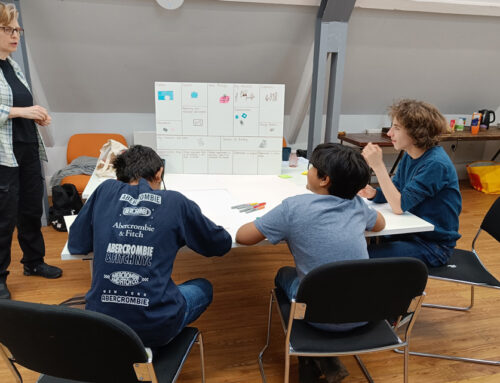The pandemic has thrown up many challenges, one of which is how to choose a university when you are unable to go on campus. You can choose up to 5 universities to apply to through UCAS, so it is worth looking at a longlist of universities initially before narrowing your focus until you have your favourite 5 left. Starting early is a good idea – I for example started looking from the beginning of Year 12, though equally don’t panic if you haven’t started just yet! This blog intends to outline my advice in supporting you to make your decisions about choosing what universities to apply to.
Firstly, make sure to look on the official university website and download or order their prospectus – these are authoritative sources of information on exactly what to expect from the university. Make sure to look at information both on the university and the course you are interested in, because, whatever subject you choose to study, you will end up spending a number of years of your life studying it, so you want to make sure it is the right subject for you. In my case, looking at the course was a decisive factor in choosing the university I have ended up going to. The university website and prospectus are how the university present themselves, and they provide the most up-to-date information on what to expect if you were to choose to study there.
Secondly, go to a virtual Open Day if the university is offering one; many universities are running these events, including opportunities to ask your questions or the chance to attend sample lectures. Just like with normal Open Days, I would consider what you want to achieve from the event beforehand, and if you have any questions you definitely want to ask, make sure to keep a note. I would also afterwards note down what you learnt, what you liked, what elements you didn’t like so much, and if there is any further information you would like. Virtual Open Days are your chance to find out what you want to know about the university, so make sure to book for the institutions you are interested in.
Thirdly, you need to choose some criteria to rank the institutions you have looked at. For example, I used national university league tables to produce a longlist before investigating further into course content, teaching methods, their approach to accessibility requirements, and information on entry requirements (I tried to look at a range of entry requirements including an ambitious, a reasonable, and a safe choice). There are many other criteria you could use, and what criteria you choose will be personal to you. Below I will outline just some of the criteria you could consider:
- University facilities and support services – if you are enthusiastic about playing sport, or if you want to participate in student theatre, among other activities, then you may want specific services to be provided on-campus. If you also have mental health difficulties, or want to be reassured that there should be support if you face any difficulties, you may wish to particularly focus on investigating what is on offer (it is worth mentioning all universities should provide mental health provision).
- Grants, bursaries, and scholarships – different universities offer different levels of support, so it is worth seeing if you are eligible for any particular funding pots. Some are means-tested, where others may be hobby or sports funds.
- Assessment type – some students have a preference for courses which are more coursework-based, where others may prefer more exam-focused assessment. Some universities are introducing other forms of assessment, like group presentations or assessment through game. It is worth noting assessment types (like many factors) may have shifted in the pandemic, so be aware it is subject to change.
- How modern the university is – some people only want to study in modern institutions, where others want to study in historical institutions, and others may be indifferent.
- Number of students – some students want to study in very large institutions, and other people want to study in smaller institutions.
- Reputation – it is worth warning that some reputations are entirely unfair, or may only represent the experience of a select few number of students, so make sure to fully scrutinize the information available and cross-check anything you find. Some institutions have a particular reputation for research, for example, which some people may choose to take into account.
- Distance and transport links – some people are very insistent that they wish to study at an institution which is not in the UK, where others may want to be able to commute to university, or you may want to be within a 2 hour public transport journey from home. Some may also want to make sure that universities are very easy to get to by train, coach, or car.
- Year abroad or placement year – of course COVID may impact upon opportunities available, and with the United Kingdom having left the Erasmus Scheme the opportunities on offer may change, so be aware that institutions may not be able to fully confirm future arrangements at this moment. However, some students may specifically want to study abroad, where others may not prioritise it so highly in their decision-making. This advice equally applies to placement years.
- Job prospects – some students may compare degrees to see which ones have higher rates of employment after a set period from finish of the degree, or other students may look to see what sort of jobs graduates go into. It is worth saying though that just because certain people go into certain careers, that doesn’t mean they will be the only jobs that can be accessed with this degree, and it is worth (like everything) interrogating how the figures are constructed as not all figures are based off the same measure.
- Accommodation – some students will require certain types of accommodation due to disability or reasonable adjustments provision, and other students may want to see how close accommodation is to teaching sites, libraries, or facilities. While the maintenance loan is intended to ensure all students have enough money to live on, some students may consider the cost of living. Some universities also have shared-occupancy accommodation (so multiple students sharing a room), where others have single rooms provision – if this is important to you, it is worth looking into this.
- City or rural location – some students have a preference for the learning environment they wish to study in, and others may choose to prioritise different factors.
- Collegiate or campus based – some universities have a college-system to varying degrees, and other universities may be campus based (on one campus, or in some cases across multiple campuses).
- Catering options – some students think it is important to have the option to self-cater, so that they can learn or improve on their cooking skills, where others have a preference for being fully catered (some universities offer a fixed meal plan which allows for a mix of catered and self-catered meals).
- Anecdotal sources – it is worth once again clearly highlighting that an individual experience (including my own highlighted in this article) is only exactly that; one person’s experience. Therefore, try not to make sweeping generalisations from the experience of a single student. Some students though may be particularly persuaded or dissuaded by the experience of those they know or those they come across on online forums; equally, do not entirely dismiss this as a source of information, as asking current students how they find studying at the university is a great way to see the merits (and sometimes drawbacks) of choosing that university. Consider how important you think this should be as a source of information, and as always consult other sources when making decisions.
In regards to my final advice, it is to say that the only official information about how a university will be is from the university themselves; under consumer law, they must provide accurate and up-to-date information on their university and what to expect if you were to go there at that point in time. Equally, university resources like websites or prospectuses are a snapshot of that university in that exact moment – particular modules may no longer be offered due to a member of staff leaving or undertaking research, or accommodation fees for example may increase because of additional costs faced by the university. Therefore it is important to discriminate sources of evidence that you use when making decisions and consider their limitations, if you need more information make sure to find it (may it be further research on their website or sending them an email – be aware though that universities may respond slightly slower than usual because of changing coronavirus restrictions), and make sure to establish exactly what you are looking for from a university.
This blog has attempted to outline my advice for choosing a university virtually, and has suggested a number of factors that you may consider when making your choice. I have also included below a presentation which I gave last year about choosing a course, choosing a university, and writing a personal statement which may be of use (when producing this video, I endeavoured to ensure all information provided was accurate at time of recording). In summary, make sure to look at the university website and university prospectus as well as attending a virtual Open Day, and make sure to consider what information you are specifically looking for. Most importantly, make sure to choose the course and university where you think you will get on best.
https://www.youtube.com/watch?v=xckBhkDjIC8
About the author: Daniel Dipper is a Trustee for the charity Potential Plus UK and is currently reading History and Politics at Oxford University. Daniel was previously a Young Reporter with Potential Plus UK and has been a member for ten years. He now volunteers to support other students applying to university and is passionate about social mobility. See his recent blog From Sixth Form to University to find out more about help that is available for prospective university students.






